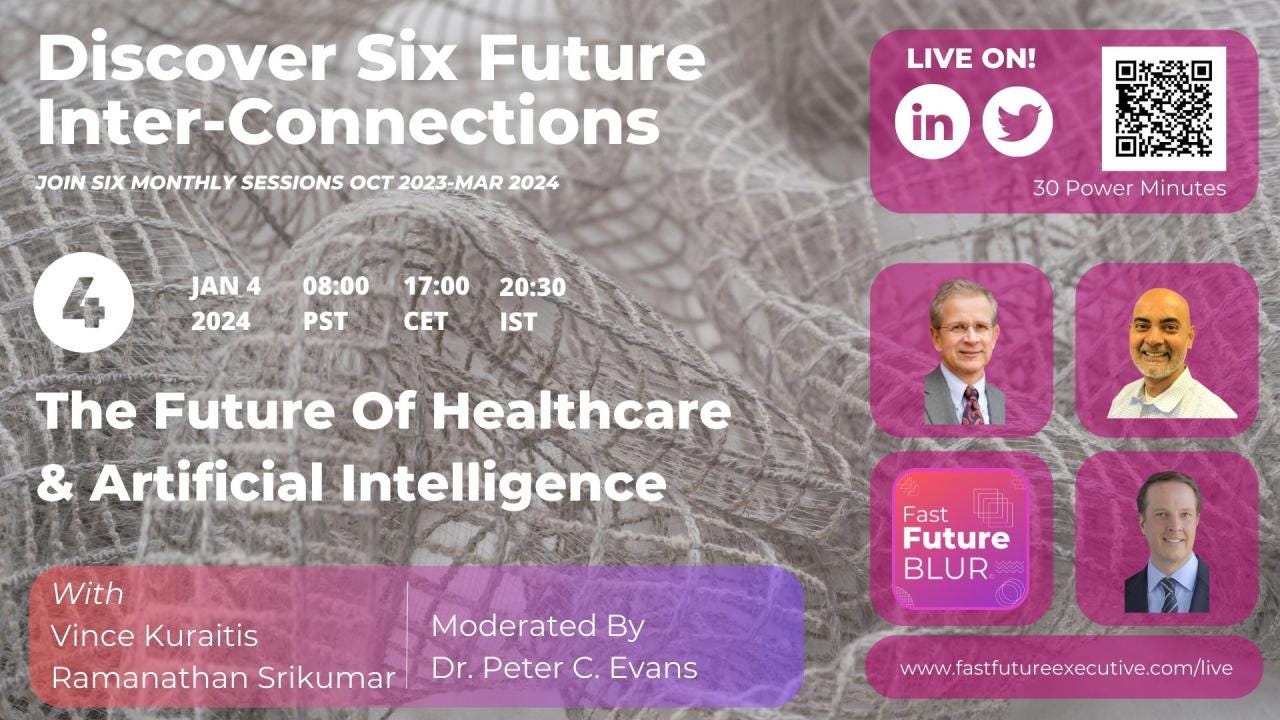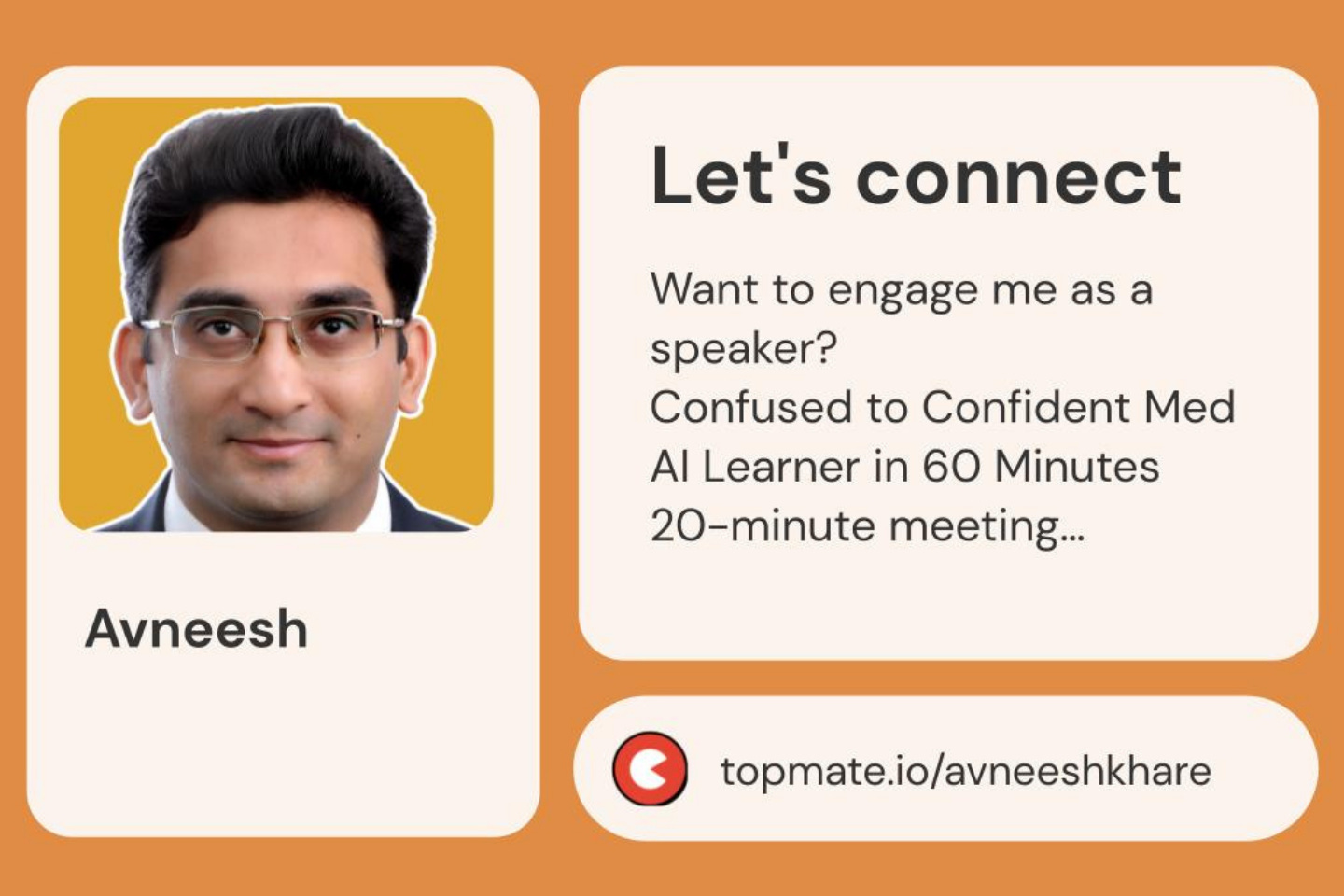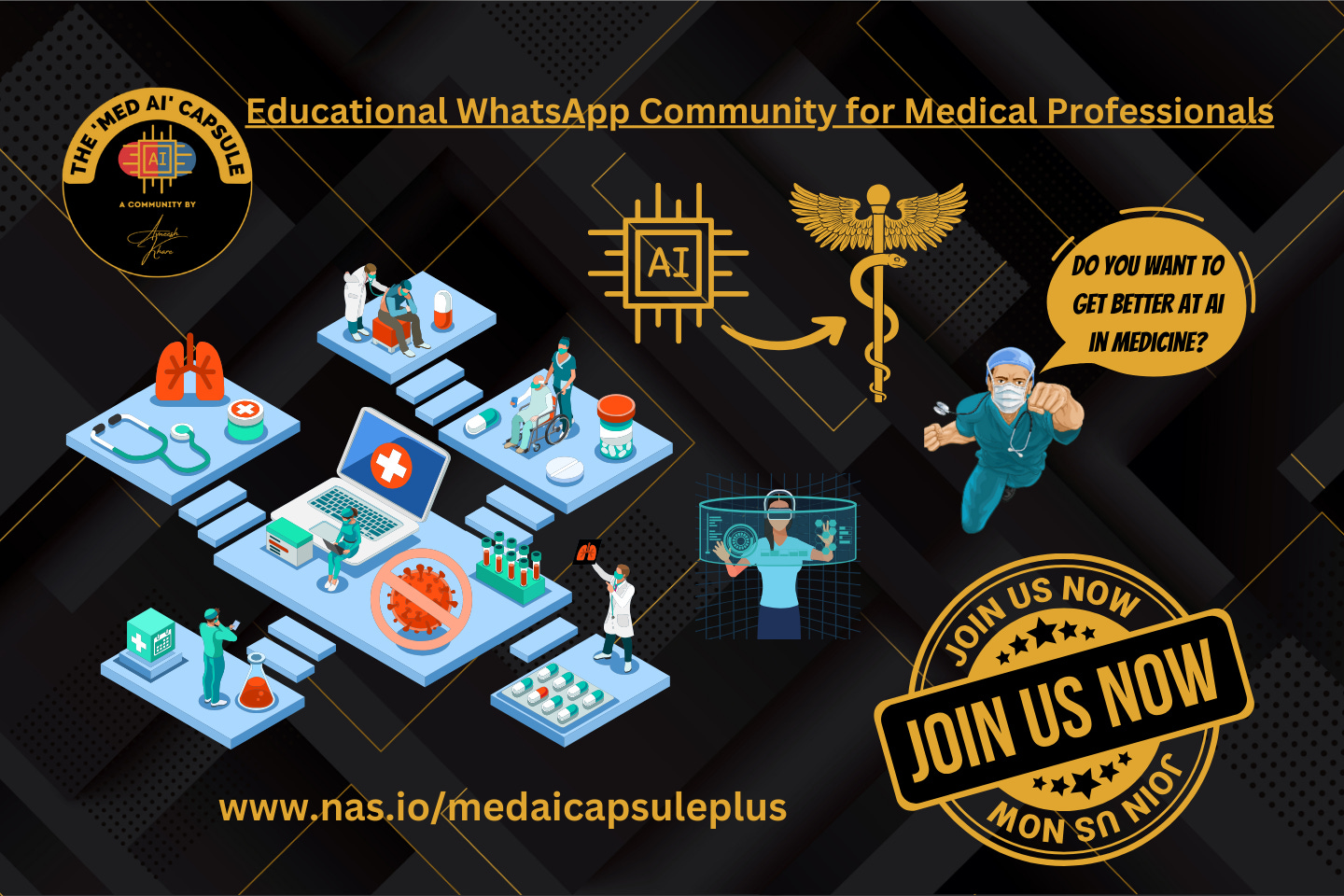🌐 Exploring Medicine's Frontiers: From Brain-Integrated 'Biocomputers' and AI-Boosted Drug Discovery to Cutting-edge 3D-Printed Treatments 🧠💼🔬
Updates on Artificial Intelligence & Emerging Technologies in Medicine 🤖🩺🚀
“What is the fate of medicine in the time of AI? Our fate is to change.” - The Lancet, 392, 2331, 2018
Dear Med AI Enthusiast,
Welcome to The ‘Med AI’ Capsule fortnightly newsletter, your inside look at how artificial intelligence and emerging technologies are revolutionizing medicine.⚕
Whether you're a medical professional 👩⚕️, a technology enthusiast 💻, or simply someone with a curious mind 🧠, The 'Med AI' Capsule is designed for you.
It helps you stay informed 📰 about the latest groundbreaking updates and offers insights into the rapidly evolving world 🌍 of artificial intelligence and emerging technologies in medicine.
Let the adventure begin! I'm thrilled to have you along for the ride. 🚀
In today’s capsule:
3 Med AI News Updates
2 Emerging Tech News Updates
1 Upcoming Med AI Event
Reading Time: 5-7 minutes
Med AI News Updates 📰
1. 🧠 Researchers Develop "Brainoware" Biocomputer That Recognizes Voices
Why Important: Researchers have developed an innovative biocomputer called ‘Brainoware’ that uses lab-grown human brain tissue to recognize voices.
This fusion of biological and electronic systems could allow more efficient AI while also enabling studies of brain disorders.
“We wanted to ask the question of whether we can leverage the biological neural network within the brain organoid for computing.” - Feng Guo, a bioengineer at the University of Indiana Bloomington
Caution: Keeping complex organoids alive is challenging. Engineering more stable, reliable ones is crucial before integrating them into silicon chips for advanced computing.
There are also ethical issues to consider with bio-neural computing.
2. 👩🔬 Boston-Based “Dotmatics” Using AI To Help Scientists Develop Drugs Faster

Why Important: Boston company Dotmatics provides software to help scientists aggregate research and apply AI for faster, better drug development.
AI models can generate promising new protein structures to potentially treat Alzheimer's, cancer, etc.
"Right now we have maybe 15-20 drugs on the market that are helped discover by AI. I think in 5-10 years, we'll be talking about drugs that were not discovered by AI." - Stephen Tharp
Caution: While AI drug discovery holds promise, concerns around data bias, ethical application of unpredictable models, and access limitations persist.
More oversight is needed as the technology matures and becomes widespread.
3. 🩺 Medical Students Propose AI-Focused Curricula to Prepare for Digital Healthcare

Why Important: A team of medical students proposed standardized AI education with 4 pillars - concepts, validation, ethics, appraisal.
This will equip future doctors with clinical reasoning and AI literacy needed in an increasingly digital healthcare landscape.
"The large language models of today are poised to transform the way we provide clinical care. As such, our medical and nursing students, and especially our faculty, need to be trained and prepared to use this powerful new tool, but also to recognize its limitations and downsides." - Professor Thomas Coffman, dean of Duke-NUS
Caution: While AI holds potential, learning it should not distract focus from other key aspects of clinical training. Curricula must emphasize critical thinking on using AI to complement clinical skills.
Emerging Tech News Updates 📰
1. 🔬 FDA Approves Groundbreaking Gene Therapies to Treat Sickle Cell Disease

Why Important: The FDA approved Casgevy and Lyfgenia, the first cell-based gene therapies for sickle cell disease in patients 12+. Casgevy utilizes innovative CRISPR technology to edit genes.
These milestone treatments can transform care.
“Gene therapy holds the promise of delivering more targeted and effective treatments, especially for individuals with rare diseases where the current treatment options are limited.” - Nicole Verdun, M.D., director of the Office of Therapeutic Products within the FDA’s Center for Biologics Evaluation and Research
Caution: Side effects like low blood cell counts, neutropenic fever, and mouth sores occurred. Lyfgenia has a black box warning for potential blood cancer risk requiring lifelong monitoring.
While promising, more data is still needed on long-term safety.
2. 🩺 Duke, Harvard Scientists Develop Ultrasound-Based 3D Printing for Surgical Use

Why Important: Engineers created a biocompatible "sono-ink" that hardens when exposed to focused ultrasound waves, enabling precise 3D printing in deep tissues.
This could transform surgical procedures from heart repair to bone regeneration.
“Ultrasound waves can penetrate more than 100 times deeper than light while still spatially confined, so we can reach tissues, bones and organs with high spatial precision that haven’t been reachable with light-based printing methods.” - Junjie Yao, associate professor of biomedical engineering at Duke
Caution: The technology is still early-stage and years from clinical use. Safety studies are needed on systematic effects of localized ultrasound exposure.
If successful, ethical guidelines for use would also be essential.
Upcoming Med AI Event 🧑💻
Stay tuned for our upcoming editions as we explore the latest breakthroughs and dive deep into the transformative power of artificial intelligence and emerging technologies, shaping a healthier future. 🚀
Warm regards,

P.S.: If you're a medical professional intrigued by artificial intelligence, but not sure where to start, feel free to reach out to me for personalised guidance.
You can also check out and join our educational WhatsApp Community for Medical Professionals.







